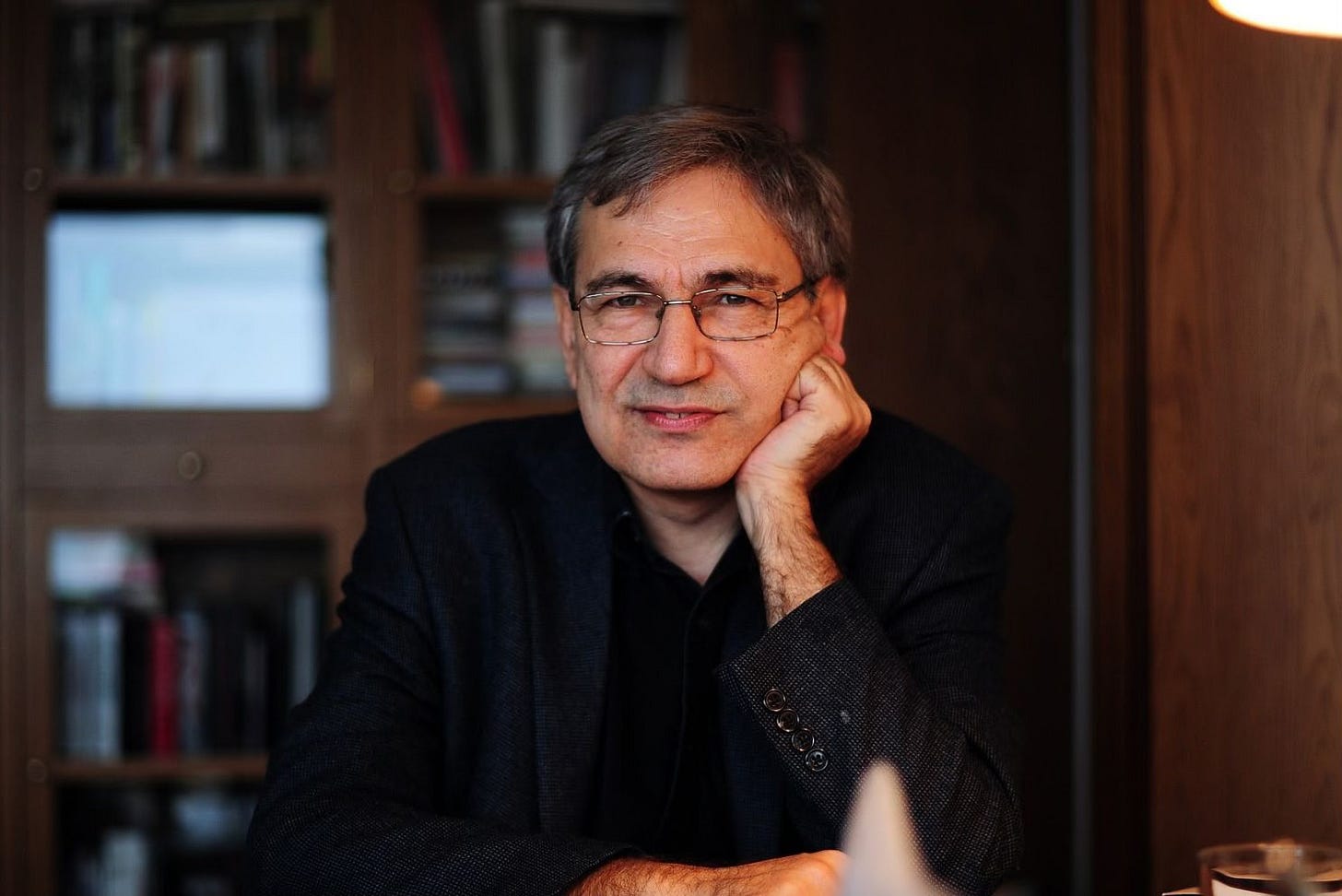Orhan Pamuk’s Writing Routine
“You write in a poetic mood. The next morning, you edit like an engineer.”
Orhan Pamuk’s novels are steeped in memory, melancholy, and obsession. He writes about Turkey—its ghosts, contradictions, and secret lives—with the intensity of someone trying to preserve a disappearing dream. His books are panoramic, philosophical, and personal. He works by hand. He revises obsessively. He builds his stories like an engineer, but writes them like a poet.
Pamuk was born in Istanbul in 1952 and has spent most of his life there. Raised in a wealthy, Westernized family, he trained as an architect before giving it up to become a novelist. “I am a failed artist,” he told Alain Elkann. “All my life until the age of twenty-two, I wanted to be a painter. Then something happened—I stopped painting and began writing novels.”
His first book, Cevdet Bey and His Sons, was published in 1982. He followed it with The Silent House, The White Castle, The Black Book, and The New Life—novels that mixed East and West, myth and modernity, realism and hallucination. But it was My Name Is Red and Snow that made him an international star, both deeply rooted in Turkey’s culture and utterly original in structure and voice.
In 2006, he won the Nobel Prize in Literature. In Nights of Plague, his most recent novel, Pamuk returns to the themes that have haunted his work for decades—epidemics, power, paranoia, and death—but sets them in a fictional Ottoman island during the collapse of empire. Like much of his writing, the book feels eerily prescient, even though it was conceived years before COVID-19.
“I don’t write to explain my country to others,” he told Slate. “I write for deeper reasons. I’m writing stories. In the end, when they are successful, they explain something, but that’s not the motivation.”
Pamuk’s critics in Turkey have accused him of being too Western, too political, too popular. His defense is simple: he writes slowly, seriously, and for himself. “I do not regret any of my books,” he said at the Sharjah International Book Fair. “They are all results of long and obsessive work.”
Orhan Pamuk’s daily writing routine
Keep reading with a 7-day free trial
Subscribe to Famous Writing Routines to keep reading this post and get 7 days of free access to the full post archives.


